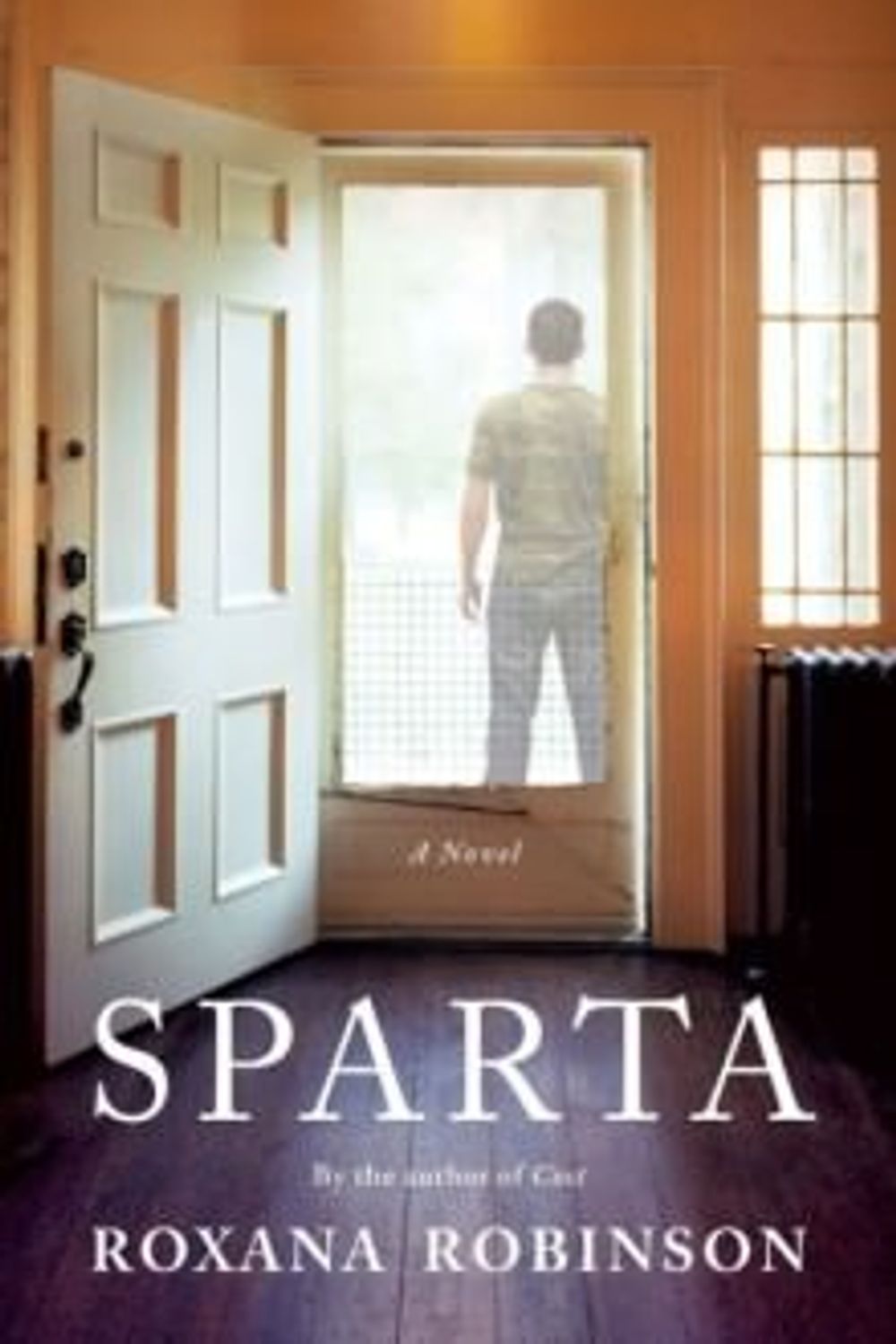‟[Sparta] is not simply about war but about the horror and enforced isolation of trauma, the inevitable merging of the personal and the political, and the possibilities and trials found within the bonds of familial and romantic love.
Sparta

Going from peace to war can make a young man into a warrior. Going from war to peace can destroy him.
Sparta included on Short List for the 2015 International IMPAC Dublin Literary Award.
Conrad Farrell has no family military heritage, but as a classics major at Williams College, he has encountered the powerful appeal of the Marine Corps ethic. “Semper Fidelis” comes straight from the ancient world, from Sparta, where every citizen doubled as a full-time soldier. When Conrad graduates, he joins the Marines to continue a long tradition of honor, courage, and commitment.
As Roxana Robinson’s new novel, Sparta, begins, Conrad has just returned home to Katonah, New York, after four years in Iraq, and he’s beginning to learn that something has changed in his landscape. Something has gone wrong, though things should be fine: he hasn’t been shot or wounded; he’s never had psychological troubles. But as he attempts to reconnect with his family and his girlfriend and to find his footing in the civilian world, he learns how hard it is to return to the people and places he used to love. His life becomes increasingly difficult to negotiate: he can’t imagine his future, can’t recover his past, and can’t bring himself to occupy his present. As weeks turn into months, Conrad feels himself trapped in a life that’s constrictive and incomprehensible, and he fears that his growing rage will have irreparable consequences.
Suspenseful, compassionate, and perceptive, Sparta captures the nuances of the unique estrangement that modern soldiers face as they attempt to rejoin the society they’ve fought for. Billy Collins writes that Roxana Robinson is “a master at…the work of excavating the truths about ourselves”; The Washington Post’s Jonathan Yardley calls her “one of our best writers.” InSparta, with the powerful insight and acuity that marked her earlier books (Cost, Sweetwater, and A Perfect Stranger, among others), Robinson delivers her best book yet.
- Winner of the James Webb Award
- Included on Short List for the 2015 International IMPAC Dublin Literary Award.
- Fiction Award, Maine Writers and Publishers Alliance, for Sparta
- A Best Books of the Year at the Chicago Tribune
- A Best Books of the Year at the BBC
- Publishers Weekly, The 10 Best Contemporary War Novels
Read a Q&A about the book
‟The energy here, and the drama of the book, is all about the tension of inhabiting a damaged mind as it attempts to right itself, through discipline, through rage, through alcohol, through family, and through therapy. The ups and downs of that long and harrowing journey home make Sparta a riveting and important contribution to the literature of the Iraq War and to anti-war literature in general.
‟Full of the grief and deep compassion that’s becoming Robinson’s trademark, Sparta is a brilliant, necessary work.
‟Sparta gives us an unflinching portrayal of the costs of war, costs that go far beyond what the tallies of killed and wounded can tell us. There are plenty of losses that can be measured only in the language of the spirit, and it’s books such as this one, necessary books, that guide us to a fuller appreciation of war’s costs.
‟Roxana Robinson’s Sparta is a feat of the imagination. Vividly and with unflinching wisdom, Robinson has given voice, substance, and profound reality to her protagonist Conrad Farrell of the Marine Corps—and in so doing to thousands of veterans like him.
‟No matter where you fall in the spectrum between hawk and dove, Robinson’s novel is powerfully affecting and takes its place on the shelf of essential war literature.
‟Robinson has transformed the coming home experience into an emotionally resonant novel that stabs readers in the heart, even as they marvel at its beautiful language and rhythm.
‟Although too carefully wrought to be called improvised, Robinson’s powerful novel demonstrates that fiction actually can function as a sort of explosive device.
‟[I]ntricately observed portrait… unusual and individualized….. the effect is cumulative and, ultimately, shattering.
‟Self-annihilation stalks Roxana Robinson’s new novel Sparta like a specter of unholy temptation, belonging to what her protagonist Conrad Farrell calls ’the lower world […] the dark, dreaming undercurrent.'
‟One of the many strengths of this engaging story is that Robinson doesn’t treat post-traumatic stress disorder with that nifty abbreviation, PTSD, neatly buttoning it in place. Instead, she shows us a more insidious, layered and complex mix of debilitating psychological wounds…
‟[A] powerful reminder both of [post-traumatic stress disorder’s] concrete existence and of the risk it poses to veterans of America’s 21st-century wars…Robinson…is unsparingly forensic in her account of this proud ex-soldier’s tortured inability to readjust to civilian life…[Sparta’s] force lies in its level of bared psychological detail. Without becoming strident or pushy, it sounds an alarm for an invisible American crisis.